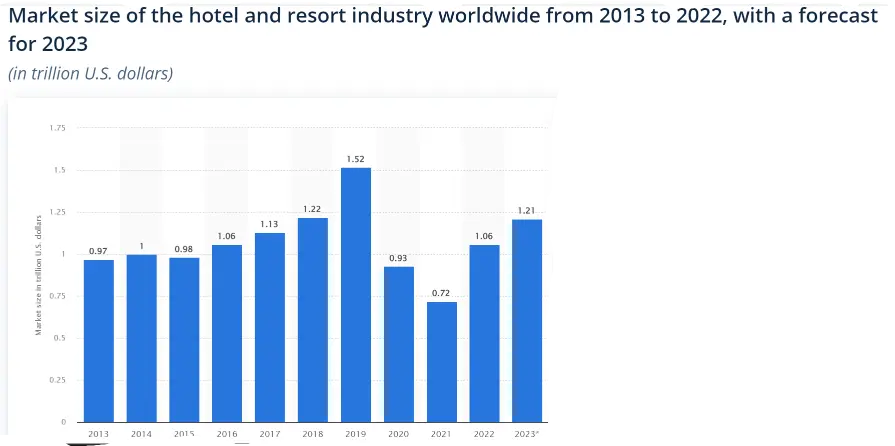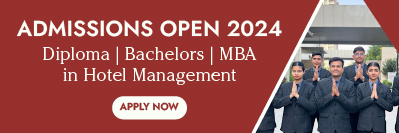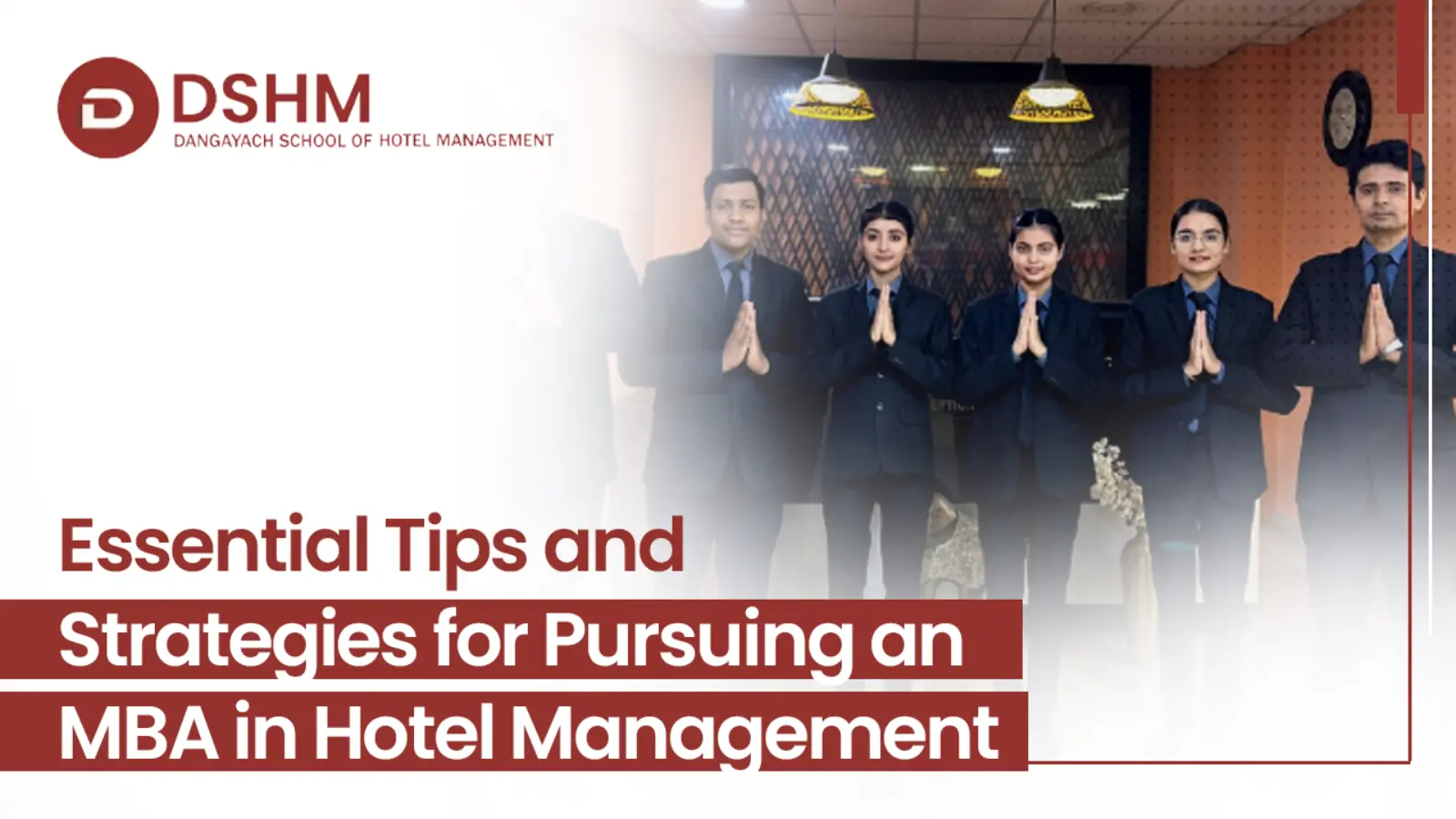Essential Tips and Strategies for Pursuing an MBA in Hotel Management
Do you want to master the art of management and administration in a particular successful industry? If yes, then why not that industry be the hotel and hospitality industry?
Today, the hotel and hospitality industry is one of the major industries showing massive growth and thus creating a great demand for managerial experts. It is a wiser choice to pursue an MBA in hotel management at a top college like ours, Dangayach School of Hotel Management.
We are here to help you learn about the hotel management MBA course along with tips and strategies to pursue it.
Table of Contents
What is an MBA in a Hotel Management Course?
The MBA in hotel management course is designed to educate the advanced concepts of
the hotel industry and the nuances of its management with a course duration of 2
years.
This course is focused on training the students in handling the hotel,
providing proper customer service, and much more on an in-depth basis for a
managerial and leadership level career in the hotel and hospitality industry.
MBA in hotel management colleges like ours, Dangayach School of Hotel
Management will unleash many career opportunities.
What is the eligibility criteria and admission process for MBA in Hotel Management?
The basic MBA in hotel management eligibility criteria to pursue at Dangayach School of Hotel Management are as follows:
- Candidates should have completed any bachelor’s degree with a minimum of 50% aggregate score.
Admission to an MBA in hotel management course at our colleges is provided by conducting an entrance exam followed by a personal interview for the candidates.
MBA in hotel management fees at our college is INR 1.2 lakhs per annum.
Covering the fundamental details of the MBA in hotel management course, here are some tips and strategies for you to pursue this course successfully.
Also Read:Top Reasons to Pursue a Hotel Management MBA Course
Tips and Strategies for Pursuing an MBA in Hotel Management
Pursuing any course related requires proper planning and dedication for successful completion of the course. Here are some tips for pursuing an MBA in hotel management.
Analyse and understand the program:
The first and most important tip is to analyze and understand the program, which means getting to know the various aspects of the MBA in hotel management such as duration, course module, etc.
Getting to know the duration and course module will help you plan and prepare accordingly.
Get to know the curriculum:
The second important step or strategy is to know the syllabus and curriculum of the course which will help you in planning accordingly.
The course curriculum and syllabus of the MBA in Hotel Management course are curated by industry experts to offer students a strong core education.
Here is the MBA in hotel management subjects.
- Marketing Management
- Front Office Theory
- Bakery and Confectionery Theory
- Financial Accounting for Tourism and Hotel Business
- Travel Management
- IT for Tourism and Hotel
- Customer Relationship and Service Management
- Legal Framework for Tourism and Hotel
- Food Safety and Nutrition
- Entrepreneurship Development
Indulge in Active Learning:
Active learning is one of the most supportive learning processes for gaining all the
necessary knowledge.
So, active learning is nothing but actively participating in the teaching sessions
such as asking questions, raising doubts, taking notes, etc.
Take advantage of the diversity in your cohort and engage actively in class
discussions, group projects, and networking events. Collaborating with peers from
different backgrounds can broaden your perspectives and enhance your learning
experience.
Create a proper study schedule:
Getting to develop a proper study schedule will help you in many ways.
Covering everyday subjects via a proper study schedule will reduce the last-minute
burden of preparing for exams. And also, going through everyday syllabus will help
you clarify doubts then and there.
Practice effective time management:
Time management is the key to the proper running of your learning program.
Balancing work, studies, and personal life can be demanding while pursuing an MBA in
hotel management courses. So, develop effective time management skills by creating
schedules, prioritizing tasks, and staying organized. Utilize tools like calendars
and task managers to stay on track.
Indulge in Skill Development:
Along the learning curve, it is your duty to indulge in skill development which is
vital for a successful career after an MBA in hotel management.
Some of the essential skills to develop are as follows:
- Leadership Skill
- Team Management Skills
- Time Management Skills
- Communication Skills
- Problem-Solving Skills
- Decision-Making Skills
- Critical Thinking Skills
- Analytical Thinking Skills
- Negotiation Skills
- Organisational Skills
- Networking Skills
- Presentation Skills
Following these tips and strategies will help you complete the course successfully and let us dig through the range of MBA in hotel management jobs.
Range of Career Options after an MBA in Hotel Management
The growing hotel industry holds a significant range of opportunities. Take a look at the development of the hotel industry.

After completing your MBA in Hotel Management, you can choose the following career options as per your interest:
- Hotel Manager
- Catering Manager
- Restaurant Manager
- Event Coordinator
- Event Manager
- Cruise Ship Manager
- Hospital Administration
- Financial Management
- Travel and Tourism Management
- Entrepreneur
Establishing a career in the hotel industry with a MBA in hotel management will be a
great upgrade in the career graph to the managerial and leadership roles.
Taking up an MBA in hotel management course at our college will be a much wiser
option, as we offer great placement support and training.
Conclusion
As a point of conclusion, we would highlight that practicing the essential tips and strategies while pursuing an MBA in hotel management can propel you toward a great career in the hotel industry.
FAQs
- Effective customer service.
- Clear housekeeping services.
- Effective communication and negotiation practices.


